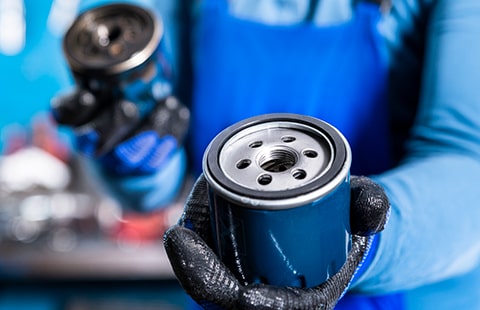Get unique, complex parts easily. No matter your requirements, Chaoyi Spring creates hard-to-produce coil springs and wire forms.
Let us help you create the custom wire form you need, from S-hooks and J-hooks to utility hooks and more.
We work closely with customers across a wide range of industries, helping them design and manufacture made-to-order parts.
Why choose Chaoyi Spring? We prioritize customer-focused collaboration, modern equipment and the latest technology to make your parts per print.
Find the information and guidance you need, from measuring a spring to learning about materials, placing an order and much more.
When it comes to your garage door, the springs are the unsung heroes, silently working to lift and lower your heavy door with ease. However, there are two main types


When it comes to your garage door, the springs are the unsung heroes, silently working to lift and lower your heavy door with ease. However, there are two main types of springs: tension springs and torsion springs. Choosing the right type for your garage door is crucial for safety and performance. This article will delve into the intricacies of both tension and torsion springs, exploring their differences, advantages, and disadvantages to help you make an informed decision.

Tension springs, often called extension springs, are found on older garage doors and are typically located on either side of the door, parallel to the tracks. They work by storing energy when the door is closed and then releasing that energy to lift the door as it opens. Tension springs are known for their simplicity and affordability, but they also come with their share of drawbacks.
One of the biggest downsides of tension springs is their susceptibility to wear and tear. Due to their constant stretching and contracting, tension springs can break over time, which can be dangerous as the door can come crashing down. They also require regular maintenance, including lubrication and tension adjustments, to ensure smooth operation. If you're not comfortable with DIY repairs, you might find yourself calling a professional more often. Moreover, tension springs are typically rated for a lower weight capacity compared to torsion springs.
Torsion springs are considered the gold standard for modern garage doors. They are located above the door, typically attached to a shaft that runs across the top of the door opening. These springs work by winding up like a clock spring as the door is closed, storing energy to help lift the door as it opens. Unlike tension springs, torsion springs are more durable and less likely to break due to their less demanding operating conditions.
Torsion springs are also designed to carry a higher weight capacity, making them ideal for heavier garage doors, such as those found in commercial applications. They offer a smoother operation and provide a more controlled descent of the door. However, torsion springs are typically more expensive than tension springs and require professional installation.
Choosing between tension and torsion springs depends on various factors, including your garage door's age, weight, and your budget. Here's a quick comparison:
While tension springs might appeal to those on a tight budget, their shortcomings in terms of safety, longevity, and weight capacity make them less desirable overall. Torsion springs, while pricier upfront, offer superior performance, safety, and longevity, making them a wise investment in the long run. If you're unsure which type of spring is best for your garage door, consulting a professional garage door technician is always a good idea. They can assess your specific needs and provide expert advice to ensure optimal performance and safety for your garage door.
Ultimately, the decision between tension and torsion springs comes down to your individual needs and budget. While tension springs offer a budget-friendly option, torsion springs provide a more reliable and safer solution for the long haul. By understanding the pros and cons of each type, you can make an informed decision that ensures your garage door operates smoothly and safely for years to come.
Browse some of the custom wire forms and springs that we manufacture. Don’t see what you need? We specialize in made-to-order products that meet your application requirements.
Visit Our GalleryNeed a custom wire form or coil spring? We make it work. Fill out the contact form and a representative will respond within 1 business day. If you have a PDF or CAD file, you can submit to request a quote.